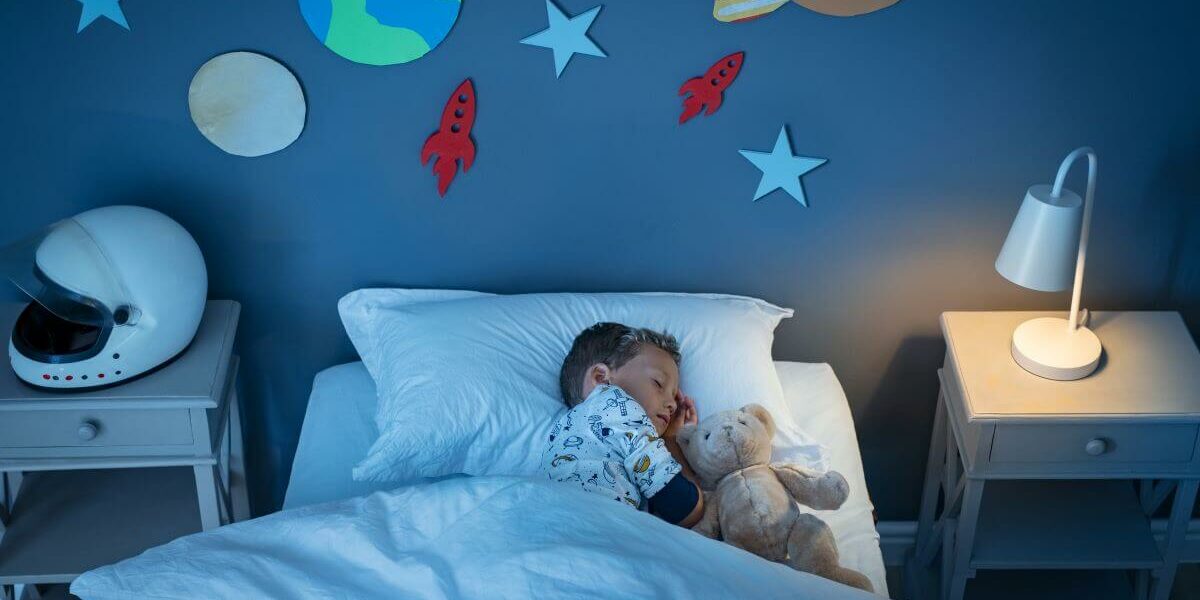We know that sleep affects every single aspect of our waking lives – our mood, behaviour, physical and mental well-being, and our performance. Disruption to our sleep can have far-reaching consequences.
All children experience sleep difficulties at some point, whether it’s refusing to go to bed, having difficulty going to sleep, not wanting to sleep alone, waking up during the night, waking up early – or something else.
However, while all children can have some issues with sleep, in typically developing children these problems tend to improve as they grow older.
For children with neurodevelopmental conditions sleep difficulties tend to be much more common and more persistent. This has a long-term impact on the wellbeing, not only of the child, but the whole family.
We know that there aren’t enough services available to support families to overcome sleep difficulties with their disabled child. Added to this, there is currently relatively limited research in this area and so we know least about the children for whom sleep problems are the most common.
Our mission is to be an authority on childhood sleep disturbances, especially for families of children with neurodevelopmental conditions.
If we can understand the unique challenges these children face, we can transform that knowledge into support mechanisms that can really make a difference.
Cerebra Network for Neurodevelopmental Conditions
At the Cerebra Network for Neurodevelopmental Disorders we want to understand more fully sleep in children with rare and complex needs. The clinical needs of these children tend to be understudied, and the tools used to study them are often poorer than for typically developing children.
Historically, research in this area has relied on parents simply explaining to researchers how many times their child woke up and for how long for. Asking sleep deprived parents to do this with accuracy is problematic and often over burdens families. To overcome this, our research team will be applying better techniques to look at sleep in children with rare syndromes. Once they have characterised their sleep more precisely, they will look at how sleep might be affecting children in the daytime. If they’ve slept well, are there also improvements in their mood, behaviour and sociability when they are awake?
The team will also be looking at developing and delivering interventions to put in place before problems with sleep emerge – so that we don’t have to wait for children to develop a sleep difficulty before we step in.
Sleep Education and Research Laboratory (SERL), at University College London
Their team have been analysing data collected from families using our Sleep Service to improve our insight into sleep on children with Neurodevelopmental Conditions. Next year we will be using the data we have gathered to develop information resources for families so that they can understand and respond to their child’s sleep problem.
Currently, there is no one place families can easily go to find information on their child’s sleep problem and instantly have solutions. We hope to develop an app that will provide an easy way for families to access information and guidance, at any time, from their home. The app will also link with our Sleep Service.
In this video, Liz Halstead from UCL explains what the first stage of research has shown.
We’ll keep you updated on all of our research throughout next year.
If you have a child who isn’t sleeping well you can access our range of resources and support here.









